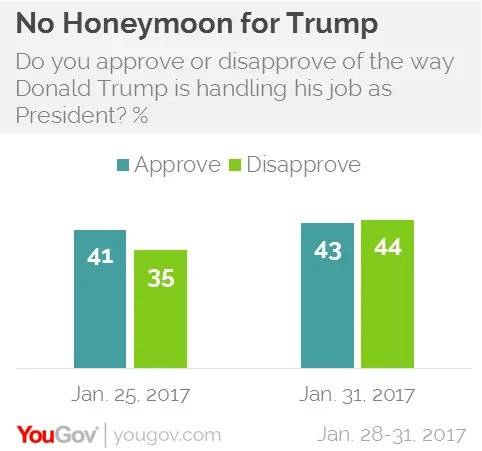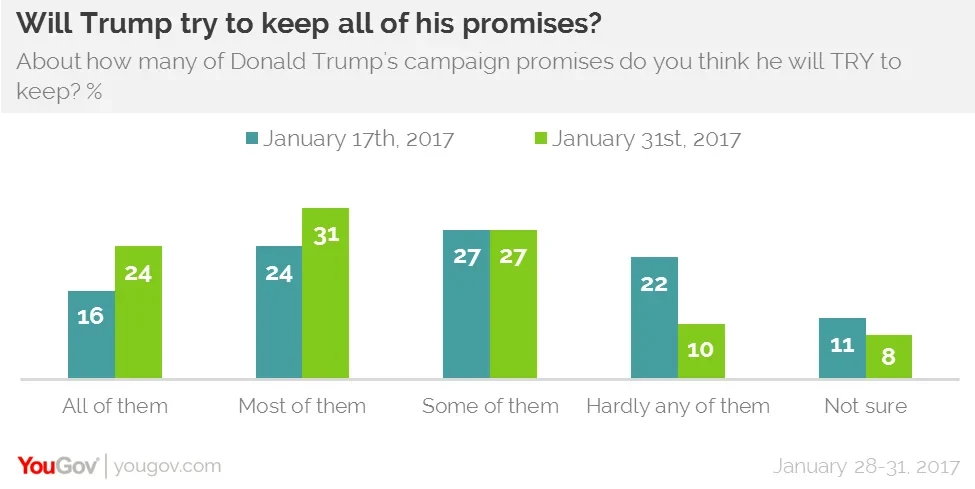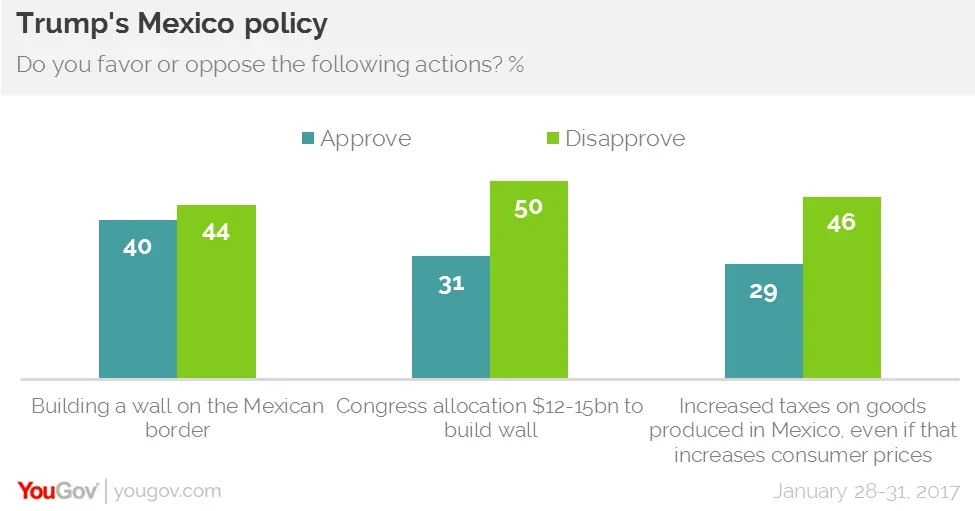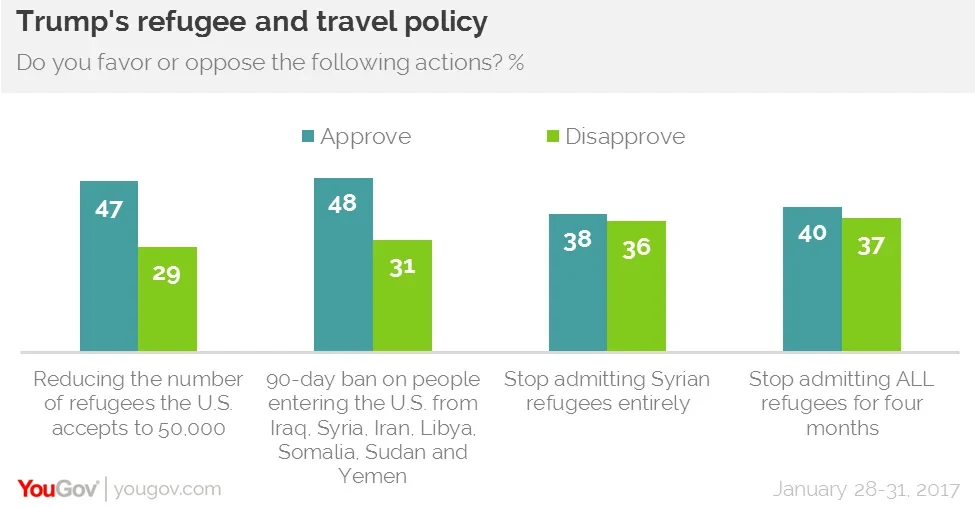Donald Trump has a net negative approval rating in only his second week as President
The public remains divided over Donald Trump. While the Mr Trump is far from enjoying a typical presidential honeymoon with the nation, the latest Economist/YouGov Poll finds Americans supportive on several of his more controversial executive orders, split on others, and opposed to other Administration plans.

The public typically holds off judging a President during his first weeks in office. Last week, one in four couldn’t say whether they approved or disapproved of the President’s performance in his first days in office. However, after last week’s flurry of activity, that undecided percentage dropped by half. The movement was in a direction the Administration may not like: approval rose two points, but disapproval jumped by nine.
Last week, Americans said they were optimistic about the next four years with Donald Trump as President by a margin of 45% to 36%. This week, pessimism runs even with optimism. 40% are optimistic, while 40% are pessimistic.
His speedy actions have made Americans believe he will do what he said he would. President Trump gets more credit now for promise keeping than he did before he was inaugurated. More than a third now say he will be able to keep all or most of his campaign promises, up from 24% before he was inaugurated. A majority of Americans, 55%, believes he will try to keep all or most of them, up 15 points since before the Inauguration.

The specifics of the whirlwind of activity in the first ten days gets mixed reviews from the public. In the area of immigration, for example, Americans divide differently on two major promises – building a wall on the border with Mexico and limiting immigration from certain countries. In this week’s poll, the Mexico border wall has slightly more opponents than supporters in principle. Paying for the wall is a problem for many. There is opposition to a Congressional appropriation of $12-$15 billion to build the wall, and there is also opposition to taxing Mexican goods if that increases consumer prices.

Even among those who support a wall, one in four don’t favor the Congressional appropriation, and more than a third don’t support raising taxes on Mexican products. Support for all of these action is much higher among Republicans and those who voted for the President.
There is more support for the limits the President placed on immigration, particularly from Muslim countries. The support is more for reductions and limits, as opposed to complete bans. Americans would reduce the total number of refugees the United States accepts and would place a 90-day ban on the entry of people from seven specific countries – Iraq, Syria, Iran, Libya, Somalia, Sudan and Yemen. Public opinion is divided on whether or not Syrian refugees should be excluded and on stopping all refugees from entering the country for four months.

Americans seem willing to accept limits on immigration, by 48% to 34% the public would stop all federal grants to cities that provide services to illegal immigrants. At the same time, there is clear opposition to other Administration initiatives and proposals, including opposition to:
- The return of the use of waterboarding and other enhanced interrogation techniques
- Cuts to the Environmental Protection Agency’s staff and budget (though a federal hiring freeze excluding only the military and security jobs, is favored)
- A major investigation of allegations of illegal voting
- Eliminating references to climate change from the White House website
Executive orders put the focus of attention on the President, and most Americans, 59%, see the President as a strong leader. Americans also think Mr Trump says what he really believes. Furthermore, what he thinks and does is increasingly defining him as a conservative to the public. Last week, only 38% said Donald Trump was a conservative, with a third not at all sure what he thought. This week, 51% call him a conservative, an increase of 13 points.
President Trump still faces the perception that he lacks empathy. Americans are just as likely to dislike him as a person as they are to like him, and half say he cares about their needs and problems only a little or not at all. More than half doubt he has the right temperament or experience for the job of President. Ironically, for a man viewed as saying what he really thinks, he still gets low marks on being honest and trustworthy. 33% say he is, but 48% think he is not. As for the nation’s mood, by nearly four to one, Americans think it’s everyone for themselves.







